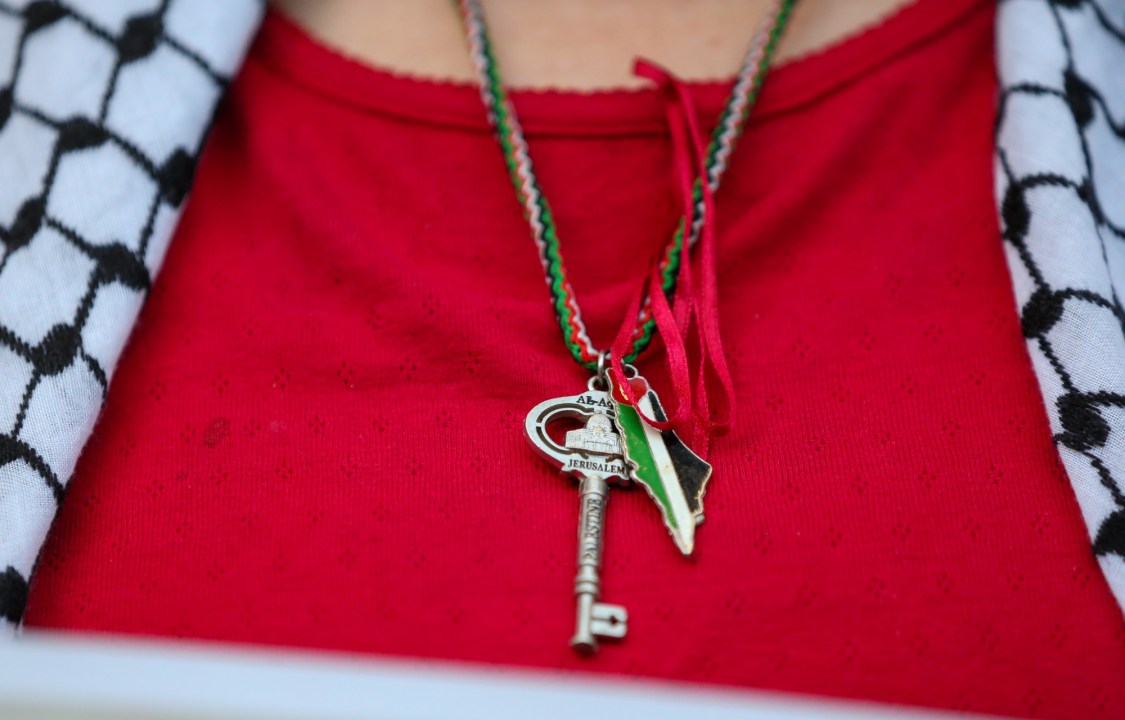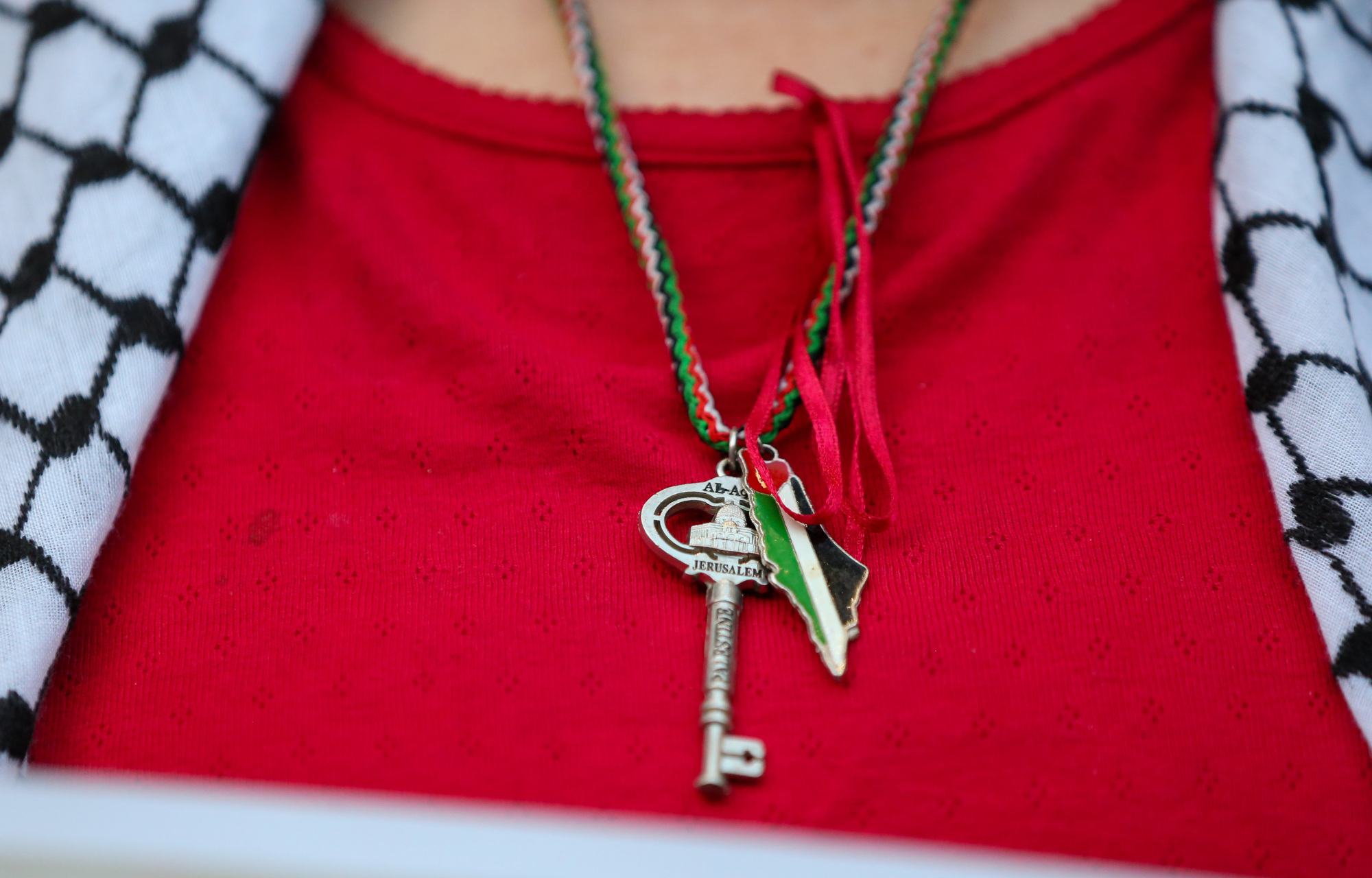As the news cycle shifts its gaze to Iran and the escalating war to prevent the psychotic Islamic theocracy from going nuclear, spare a thought for the few hundred virtue-signalling westerners who thought it would be clever to traipse through Egypt and attempt to approach the Gaza border, armed not with aid or expertise, but with slogans, smartphones, and a boundless belief in their own moral radiance. They came, allegedly, to show solidarity with Gaza. What they revealed, instead, was the sheer delusion of performative activism gone rogue.
Egypt, they quickly discovered, is not Glastonbury
These self-styled heroes of humanity had absorbed the wildest claims from Hamas propagandists: tales of genocide, disproportionality, and babies being starved by ‘Zionists’ for sport. That this information may have come from a terrorist organisation that systematically lies, stages suffering for cameras, and steals aid from its own people did not seem to give them pause. Nor did the macabre irony that Hamas triggered this war by butchering Israeli civilians on 7 October, in an Iranian-backed rampage. For the marchers, it seems context and truth are distractions. Israel is evil, Gaza is pure, and anything that complicates this infantile morality play must be ignored.
And so they flew to Cairo, preening like missionaries, oblivious to the region they were entering. Egypt, they quickly discovered, is not Glastonbury. Its security services do not offer vegan meal options or safe spaces. Within days, hundreds were detained, deported, or dumped back in the capital. One might almost feel sorry for them, if it weren’t all so laughable. Their misfortune wasn’t just predictable, it was the logical outcome of their fantasy-driven politics colliding with a brutal, indifferent reality.
One particular scene went viral, mostly because of its tragicomic absurdity. A heavily tattooed man from Wales, claiming to be a nurse and pacifist, stood theatrically in front of Egyptian officers, pleading for passage. His Welsh lilt only sharpened the absurdity: ‘You do have a choice. You’re humans. We’re here for humanity… You are my brother. In Islam, you are my brother!’ A woman beside him asked, ‘Are you a Muslim?’ He ignored her. The performance rolled on. ‘Please, I saw them shooting pregnant women, Muslim women.’ Behind him, the crowd chanted ‘Free, free Palestine,’ and our Florence Nightingale of farce continued: ‘These people aren’t Muslims doing this, they’re Zionists. They’re not Jewish… I stand for Islam, I stand for the people of Falesteen.’
I almost feel sorry for these useful idiots who have flown to Egypt thinking that Egyptians are going to let them march through the country and simply open the border to the Gaza.
— Nicole Lampert (@nicolelampert) June 14, 2025
I feel sorry for them because some of our media has encouraged this idiocy.
Our media hasn’t… pic.twitter.com/ERJaYOsrCU
It would have been risible if it weren’t so revealing. Far from being political or humanitarian action, this was mere street theatre, but it soon wore thin: even the over-enthusiastic Arabic interpreter who had manically waved his arms and relayed this poor chap’s desperate message eventually wandered off, apparently bored. The Welshman carried on alone, invoking starving babies, empty breasts, and the ‘white hearts’ of the Arab world. This, presumably, was meant to dignify his sobbing saviour complex, but it came across as patronising. The whole thing felt like a pitiful, live-streamed hallucination or a previously unseen moment from Little Britain.
But it’s not just idiocy on display. There is a deeper, darker pattern at work. Though they’re encouraged by the activist news angles which seek to paint the conflict in simplistic, black and white terms, like a Ladybird book version of reality, these activists do not simply fall into their beliefs. They seek them out. They aren’t ‘radicalised’ like someone catches a cold. Instead, they walk themselves into it, one credulous, self-congratulatory step at a time. As philosopher Quassim Cassam argues, extremism isn’t just about ideology or tactics, it’s a mindset: rigid, conspiratorial, and self-righteous. It thrives on grievance, absolutism and moral vanity. And crucially, it is chosen. People adopt it to interpret the world in a way that flatters their self-image and justifies their hostility. In this sense, the activists’ worldview isn’t imposed upon them, it is cultivated, reinforced, and rehearsed, with each act of public ‘solidarity’ functioning as both ritual and performance.
They don’t appear to ask why Hamas steals aid, embeds rockets in hospitals, or uses civilians as shields. They ignore why Gaza remains under blockade: because demilitarisation and deradicalisation were never accepted. Instead, they fixate on Israel, the Jewish state, as a unique and monstrous evil. This obscene inversion is not empathy. It is hatred, moralised.
And the media helps. The BBC and other outlets regurgitate Hamas casualty claims as gospel, air scripted stories by Hamas leaders’ children, broadcast false claims of ‘flattened’ hospitals, and treat every activist as a prophet or a saint. The BBC Arabic service even insisted that Jews spit on Christians as part of a holy festival ritual (we don’t). The result is a feedback loop of propaganda and performance. The media amplifies the activists. The activists believe the media. And all of them seem to reinforce each other’s prejudices under the performative illusion of humanitarianism.
If they cared for Palestinians, they would campaign for Hamas to disarm, for children to be educated in peace, and for aid to be routed through secure, accountable channels. They would support Israel’s right to exist and defend itself, and they would call out the Islamic fanatics who hold Gaza hostage and murder and rape Jews. But that would require moral clarity, political knowledge, and a spine. Far easier to film yourself sobbing outside Rafah and post it on Instagram for instant likes and shares.
In the modern world, victimhood is currency. And being manhandled by Egyptian police, or weeping theatrically for the cameras, only boosts your activist credentials. They aren’t real martyrs, but they certainly play them online.
This is a grotesque masquerade. It feeds anti-Semitism, empowers terrorists, and distracts from real solutions. And all for what? So a few westerners can feel righteous for an afternoon. Spare a thought indeed, but not a tear.








Comments